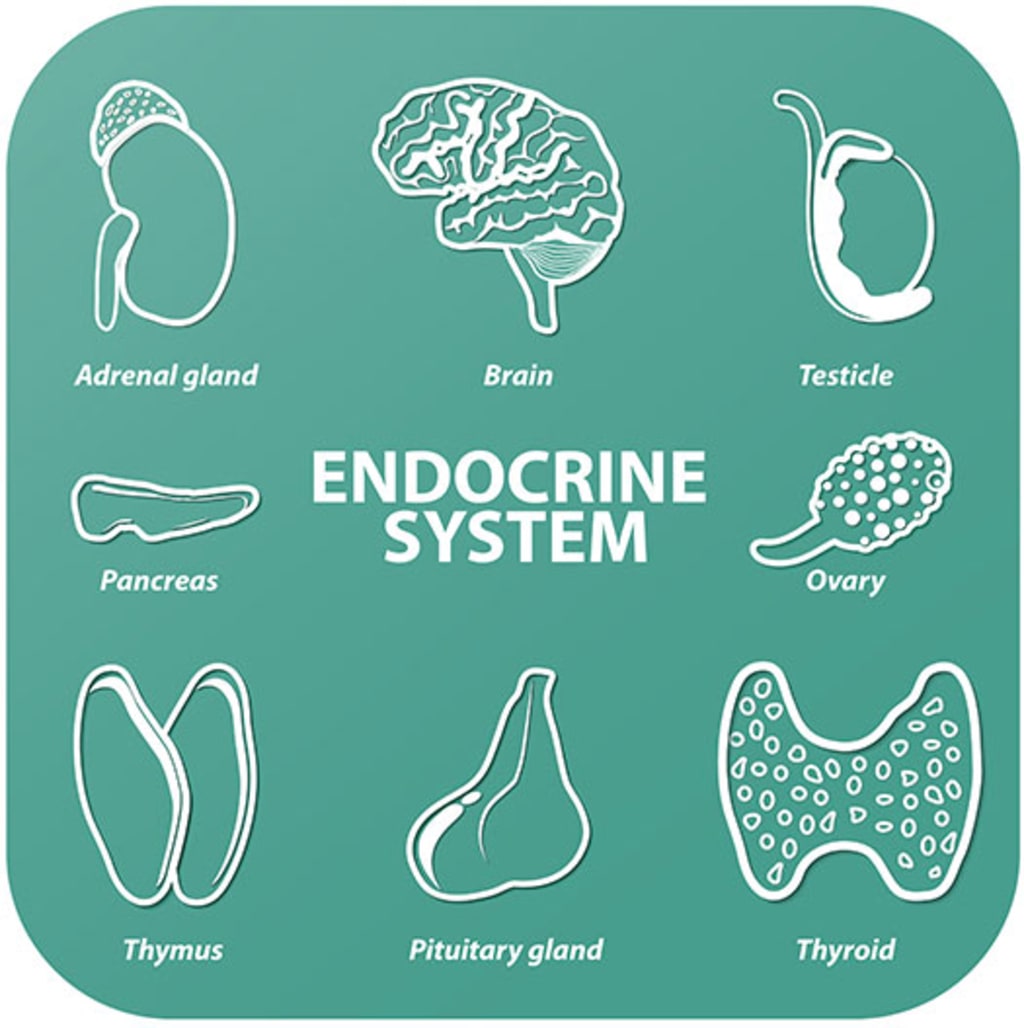Discuss and Evaluate the Influence of Hormones on Psychology and Behaviour
Biological Basis's Essay

Hormones are organic chemicals which arise in the body and are connected with behaviour, mood and development, helping to maintain homeostasis. They are produced and released by specialized glands called endocrine glands (J. Nelson 2000). They can be divided into three categories: amino acid derivates, peptides, and proteins and steroids (Preece 2012). Hormones are the most familiar to people because of the use and abuse of steroid hormones for different aims, such as contraception and bodybuilding (D. G. Hardie 1991). In this essay, I will explain the main concepts of the endocrine system with a regard to behaviour and in particular sexual behaviour.
To understand the interaction of hormones and behaviour it is necessary to provide a general knowledge of the endocrine system and its functions. The endocrine system controls the responses to external events and these responses are carried via messengers: hormones (Silber 1999). The endocrine system has several general features, one of them is that the endocrine glands are ductless (secretes directly into the blood) and have a rich blood supply; hormones are secreted into the bloodstream and can travel in the blood to virtually every cell in the body and can also interact with any cells that have appropriate receptors. Finally, hormone receptors, deposit in the cell membrane, interact with a particular hormone or class of hormones (J. Nelson 2000). There are two types of glands, Endocrine glands produce hormones that are secreted directly into the blood, consequently, they can take effects almost immediately. While exocrine glands, have tubes into which their products are released. Some examples of exocrine glands are the salivary, sweat or mammary gland. These two glands have significantly different roles. The main endocrine glands and their functions are different. The pineal body is involved with the regulation of the body’s natural rest-active cycles and secretes melatonin. The pituitary gland is extremely important because of its multiple functions; it controls the growth of bone and tissue, regulates the amount of water reabsorbed by the kidney, protects the body from stress and stimulates the thyroid, moreover, produces some important hormones (such as growth hormone, luteinizing hormone, adrenocorticotropic hormone etc.). The hypothalamus is another significant gland, as the pituitary gland it produces many important hormones such as the gonadotropin-releasing hormones or the growth hormone-releasing hormone. Furthermore, it has control of the endocrine system, especially the pituitary gland. The thyroid gland is another important part of this remarkable system; it controls the proportion of growth, metabolism and calcium levels in the blood, and releases two important hormones: the thyroxin and calcitonin. Instead, the parathyroid gland supports the homeostasis of calcium and liberates parathormone. The thymus is important because promotes the development of the immune system and releases two hormones called thymosins and T lymphocytes; while the adrenal glands consist of an outer gland, the adrenal cortex and an inner gland, the adrenal medulla. These glands concern the stress response, mediate the conversion of proteins into sugars, and finally release epinephrine, norepinephrine, aldosterone, and cortisol. The pancreas functions as endocrine gland but also as exocrine gland, the important functions is the secretion of insulin, glucagon and somatostatin to control sugar metabolism. The last two significance endocrine glands are the gonads, that are divided into ovaries and testes. The female gonads secrete estrogen and progesterone to regulate the development of female characteristics. The variation in these hormones can also result in fluctuations in mood. The male gonads produce testosterone and regulate male characteristics. Just as ovaries, also testes can cause a fluctuation of mood, due to the change of gonadal hormones (Preece 2012).
Like mentioned before, there are general physiological effects of hormones that may alter behaviour; but for better understanding of this interaction, it is important to state what is behaviour. It is a response to internal and external stimuli, and it has many components such as sensory, neuronal, endocrine, and effector; moreover, it has a genetic basis, but it can also be modified from experiences (Starr, Taggart 1992). The animal’s behaviour is made up of three interacting components: input systems (sensory system), integrators (the central nervous system), and output systems, or effectors (e.g. muscles). It is important to note that hormones do not cause behavioural changes, but they influence these three systems. For a greater understanding on how these systems function, it is relevant to do an example of an animal: the zebra finch. These birds sing in nature, but if the testes of the adult male finch are removed, the bird stops singing; castrated finches instead, begin again singing if the testes are re-implanted, or if they are furnished of testosterone. This means that when the level of testosterone is high, the singing is most frequent. The input system alters the sensory abilities of the bird, making the environmental signals that evoke singing more remarkable. Furthermore, testosterone could influence the central nervous system, for instance in the speed of neuronal process. Hormones may affect behaviour by influencing one, two or all three of these components. One important argument related to behaviour and hormones is stress; usually, when a stressor interrupts physiological homeostasis, it will result in something called a stress response. Many different stressors can evoke a stress response, several studies demonstrated that epinephrine and norepinephrine play an important role in it (J. Nelson 2000). Other studies have shown that not just these two hormones are involved in the mediation of stress; the hypothalamic-pituitary-adrenal axis (HPA axis) works during stressful situations as well. In addition, hormones can also affect mood. Premenstrual syndrome (PMS) can explain this because its symptoms emerge to be a result of hormonal changes; it is known that PMS is the cause of mood changes, in fact, men and women use this term to speak about the behaviour and moods of women (Sapolsky 2001).
Particularly important in the relation between hormones and behaviour is sexual behaviour. It has evolved to bring the two gamete types together; male sexual behaviour is necessary for the transferring of the male gametes to the ova. The motivational force that moves people to look for sexual union is called sex drive, and it is stronger in males than in females. Regarding the male sexual behaviour, it could be divided into two stages: the appetitive phase and the consummatory phase. The first is the moment of the courtship, when the male is trying to achieve the female’s interest. While the second phase concerns the exact moment of the sexual union. The role of hormones in these two stages are different, they affect both sex drive and sexual performance but on different levels. The principal hormones that affect sexual behaviour in male are androgens. They appear to affect the probability of the copulation by decreasing the threshold of these behaviours in the presence of the proper social context and proper stimuli. Therefore, hormones facilitate the male response, by influencing the perception and processing of the stimuli associated with the female. Female sexual behaviour is quite different, not only in humans, it is also a noticeable state in animals; for instance, a female dog changes its behaviour when it is in estrus; it looks for males and prefer to remain near them. The hormones associated with maturation of the ova have evolved to influence her nervous system in many ways and the result of the neural changes influence her behaviour, therefore the probability of mating and consequently of reproduction, is increased. Moreover, mammalian female reproduction has six parts: courtship, mating, ovulation, pregnancy, parturition and lactation. Finally, it is important to note that female sexual behaviour is defined as all behaviours necessary and sufficient to attain fertilization of female gametes by sperm; just as it happens in males, sex drive provide a strong motivational force, persuading females to look for sexual union (J. Nelson 2000).
In conclusion, we can say hormones and the endocrine system play an important and interesting role in the balance of behaviour and of mind. Fluctuations of hormones can lead to many problems such as stress or even depression, and maintaining a healthy balance of hormones is recommended to prevent collateral effects. The major influence of hormones is sexual behaviour because it allows us to carry on with the human race, without hormones, the human being will cease to exist.
References
-Hardie D.G. (1991). Biochemical messengers: Hormones, neurotransmitters and growth factors. London: Chapman & Hall, 1991.
-Nelson, Randy J. (2000). An introduction to behavioral endocrinology. Sunderland, Mass. : Sinauer Associates, 2000.
-Preece E. (2012). Biological Psychology. Prentice Hall; 01 Edition.
-Sapolsky, R. M. (2001). Depression, antidepressants, and the shrinking hippocampus. Proceedings of the National Academy of Sciences, 98(22), 12320-12322.
-Silber, K. (1959). The physiological basis of behaviour: Neural and hormonal processes. London; New York : Routledge, 1999.
-Starr, C., & Taggart, R. (1992). Integration and Contol: Endocrine Systems. Biology-The Unity and Diversity of Life. Belmont, California: Wadsworth Publishing Company, 587-590.
About the Creator
Chiara Marullo
Psychology student at @birkbeckunilondon
I love psychology with all my heart. Understanding and helping other people is the base of life, and that's what psychology does. Please, share these important psychology's concepts.






Comments
There are no comments for this story
Be the first to respond and start the conversation.